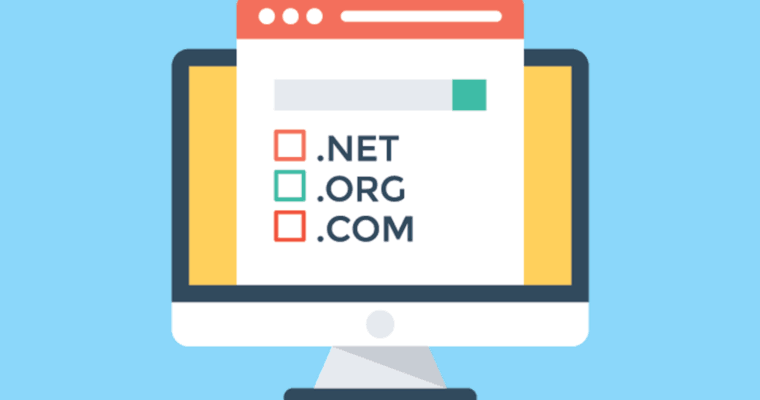
Choosing A Domain Name
In the business of building a large number of Niche sites, domain names are going to likely be your single largest cost, or at least near the top if you are outsourcing most of your work.
Domain names are important for many reasons, not the least of which is that you don’t want to be wasting money on poor choice domain names.
In this tutorial, I’m going to provide you with the information you need to ensure you are choosing the most appropriate domain name for your sites.
First, for those who don’t know what a domain name is, it’s simply the web address of your site – espn.com is a domain name, for example.
A domain name is a key step in getting set up online. It’s the first thing your customers will see. You need to make a great first impression.
Your potential customers will see your name in many different places:
- Natural Search results such as on Google, Yahoo and Microsoft search
- Video Marketing
- Pay Per Click Advertisements that you run
- Ezines / Newsletters that you publish or run ads in
- Email and Forum Signatures
- Off line advertising such as newspapers, direct mail, business cards or magazines.
There are a number of things to consider when purchasing a domain name(s). Here are the key considerations you’ll want to run through prior to making your purchase:
Top Domain Name Don’ts:
- Don’t use excessive dashes in the domain name.
- Don’t use unrelated phrases in the domain name.
- Don’t use too many keywords in the domain name.
- Don’t repeat the primary keyword in the domain name.
Top Domain Dos:
- Do use the primary keyword phrase in your domain name.
- Be as specific as possible for your keyword phrase (long tail keyword phrases)
- Place the primary keyword phrase at the beginning of the domain name.
- Include commonly used related phrases in the name like “news”, “tips”, etc
- Use action keywords like “cheap”, “discount”, “buy”, “deals”, “get”, etc.
- Use top level domains like.com,.net,.info,, or.org,
Some additional tips:
1. Use a specific keyword – or better yet, a long tail keyword phrase – in your domain name.
I don’t recommend using multiple keywords and definitely DO NOT repeat the same keyword in the domain name.
2. Put your primary keyword at the beginning of the domain name. Let’s use an example to illustrate: Suppose you are selling garden tools.
Not just any garden tools; you sell low-cost, high-quality garden tools. The name of your company is Garden Tool World.
Using the tips above, you will purchase the domain names for your company. But what about your product?
The key here is to look for names for your product domain that people will be searching for.
When a potential customer goes to a search engine, will he or she look for “low-cost high-quality garden tools”? Or the customer look for “Cheap Garden Tools”?
From our earlier research, you can find out what people are looking for.
So if people are looking for “Cheap Garden Tools,” then your domain name might be cheapgardentools dot com.
Choosing a domain name is an important part of the overall marketing process and should not be taken lightly.
Make sure your domain name represents your company, product, and image, and you’ll be setting a great foundation for future sales.
3. If you run into difficulty in getting the domain name that you want,, try using action words at the end of your domain name.
Examples of this would include for sale, discount, on eBay, deals, etc. You could also use tips, blog or info., for example.
If you had a site using videos to train roofers, you could go with roofervideos.com. Another idea would be to put a number behind your keyword.
For example, cheapgardentools442.com would work just as well as cheapgardentools.com because your keyword phrase is at the beginning of the domain name.
4. Don’t be afraid to use keywords that reach out and grab attention. Words like warning, alert, cure and warning are all such terms.
5. By all means, DO NOT use words in your domain name that have nothing to do with what it is your site is about.
6 Use only well known top level domains such as.com,.net,.info,.org &.us. Stay away from domains like.tv and.biz.
Credibility is key – sticking with top level domain names will help you in that department.
Of course, if you can get.com, that’s the way to go, but if the name you want isn’t available in.com, one of the other top level names will be just fine.
If you find you are having trouble coming up with a domain name for your venture, you can visit Nameboy.com.
That site will generate plenty of domain name suggestions for you based on the keywords you enter. Another site I like to use is Instant Domain Search.
This particular site “helps you find a domain name as fast as you can type.”
7. Stay away from domain names with hyphens in them. While this used to be a good idea, it no longer is.
Using domain names with hyphens in them can have an adverse impact on your ability to rank highly in the search engines.
8. Keep it as short as possible.
Although some places allow you to register a name with up to 63 characters, you have to keep in mind that people need to be able to remember it and easily type it into their browser.
Try to register the shortest name that your customers and other site visitors will associate with your web site.
The general rule of thumb is, keep it under seven characters if possible (not including the suffix).
While the vast majority of your potential customers will be clicking on a link, there are those who will type in your domain name.
9. Go with.com when at all possible.
Dot what? There are many suffixes available now. For businesses, we recommend a.com suffix.
It is the first extension that most people try when searching for a web site.
Also, since it is one of the oldest extensions,.com shows that your business has been around for a while and that you have a well-established presence on the Web.
10. Register your domain now. Domain names are being snatched up faster than candy at the St. Patrick’s Day parade.
You must register soon unless you want to get stuck with “the-domain-name-that-no-one-wanted.net.”
You do not have to have a webmaster or an e-commerce department or a web design consultant or…. Heck, you don’t even need a web page.
Just get out there and register before you lose the opportunity to get the name you really want.
11. Ask around. When you have settled on several available name choices, see what your friends and clients have to say.
A name that may make perfect sense to you may be too hard for other people to remember. Is your domain easy to say? Is it hard to spell?
Do you have to explain why you chose the name?
12. Don’t spend lots of money. At one time, companies were able to get away with charging reservation fees plus a “mandatory” $70 InterNIC fee.
A number of years ago, it was decided that other companies should be able to compete to sell domain names. This has lowered prices dramatically.
At the time I’m writing this, you can get a private.com domain at 1&1 for as little as $6.99 which is the best price on the market by far.
1&1 is the only top registrar that provides private registrations at no additional cost.
13. An important aspect of your domain name: You must check to see if your domain has ever been used by someone else.
If your brand new domain name was used for spam or unethical internet practices, it will be extremely difficult to get it indexed in the major search engines.
This is not an issue you want to deal with. Check out your potential domain name at http://www.archive.org and see if it has ever been owned.
If it has been owned, take a look at the archives to see if someone was breaking any rules with this domain.
Trust me; you will thank me if you find out that it has been abused in the past. There is no reason to make search engine optimization harder on us if we can avoid it!
If you think that if you have found the right domain name and have checked out any previous use, but you’re not quite sure if it’s the one… register it anyway before someone else does!
Article Source: http://EzineArticles.com/3398552




